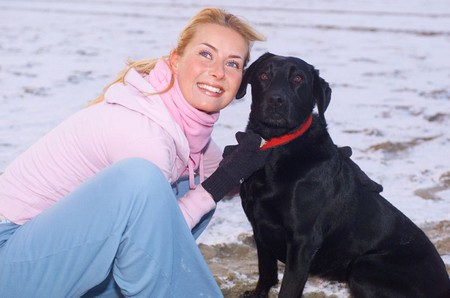Dogs that bite or show aggression toward people outside the family group usually feel insecure about their relationship with their owners and/or their property, or have been frustrated relative to people at barriers, on leashes, etc.
- The best way to deal with aggressive behavior is to prevent it in the first place! The good thing about starting with a young puppy rather than an older dog is that puppies are more impressionable and akin to learning proper dog training. So the first time your pup growls, bites, or chews, immediately say “NO” in a firm, confident voice. Make sure you offer an alternative, preferred response to the action so he can be rewarded for performing it. If you act quickly and consistently enough, your puppy will halt its aggressive behavior before it even becomes an issue. If you need someone to look after your dog, you may use a dog sitting mobile app and you can rest assured that they will behave properly.
- Set rules that is humane but consistently enforced. Get your dog accustomed to your handling off food, toys, and his body. Let him know that toys are a treat, not a privilege, and that food is always served on your schedule, not his. Additionally, cuddle and pet your dog when he or she is calm, not excited. Do not work your dog into a fluster and then expect him to not show his teeth or some snarling when you unexpectedly pick him up.
- Dogs can be trained with love and affection, so if you are going to punish your dog, do so with just a firm rebuke rather than physical punishment or a loud voice. Reward your dog with treats and praise for calm, subordinate behavior. When your dog sees that behaving well is a good thing, he will be much less prone to act out aggressively.
- Dog’s teeth between the ages of three and six months, and at this time they become more playful. Biting and chewing becomes more common because it allows the dog to soothe their aching gums. While a little playful gnawing isn’t aggressive, it can lead to aggressive biting if encouraged. A great solution is to put your dog’s favorite toy in the fridge overnight, then give it to him to chew on all next day. This will not only keep him from nipping on humans, but also help soothe the teething pain.
- This is absolutely crucial in your dog’s development and essential in preventing unwanted aggressive behaviour. The more used to other dogs and people your dog is, the less likely he will develop common aggression problems later in life. Show him respectful behavior towards children, visitors, and other dogs at an early age, and reinforce this behavior. Your dog will learn to love people and other dogs, and relish in their company.
- Games that encourage winning bring out the most aggressive behavior in dogs, so avoid these types of games. Instead, encourage light, non-competitive games such as running and playing fetch.
Further Readings:
